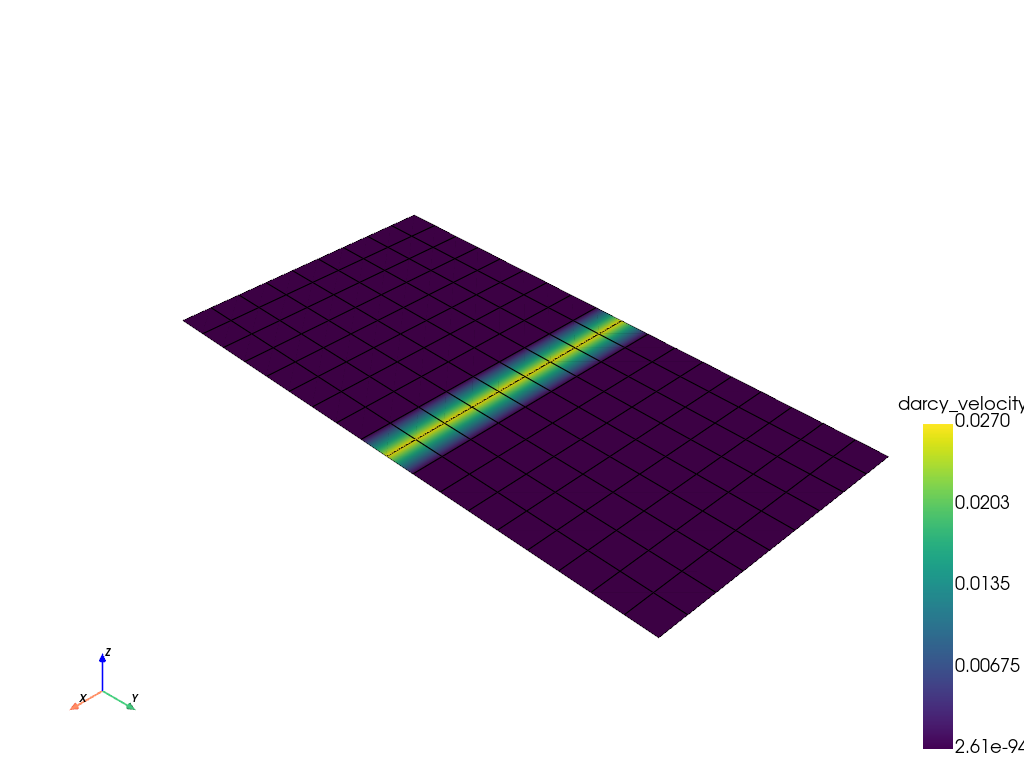Note
Go to the end to download the full example code.
Read mesh from file (vtu or xdmf) into pyvista mesh#
from ogstools import examples
To read your own data as a mesh series you can do:
from ogstools.meshlib import MeshSeries
mesh_series = MeshSeries("filepath/filename_pvd_or_xdmf")
MeshSeries takes as mandatory argument a str OR pathlib.Path that represents the location of the pvd or xdmf file. Here, we load example data:
ms = examples.load_meshseries_HT_2D_XDMF()
Accessing time values#
All time value (in seconds) are within a range (e.g. can be converted to list) Python slicing is supported.
print(f"First 3 time values are: {ms.timevalues[:3]}.")
# Accessing a specific time step
timestep = 10
print(f"Time value at step {timestep} is {ms.timevalues[timestep]} s.")
First 3 time values are: [ 0. 900. 1800.].
Time value at step 10 is 9000.0 s.
Read data is cached. The function read is only slow for each new timestep requested.
mesh_ts10 = ms.read(timestep)
# The mesh taken from a specific time step of the mesh series is a pyvista mesh
# Here we use pyvista functionality plot.
mesh_ts10.plot(show_edges=True)

MeshSeries from PVD file#
ms = examples.load_meshseries_THM_2D_PVD()
ms.read(0).plot()

Total running time of the script: (0 minutes 0.582 seconds)
